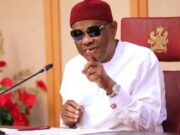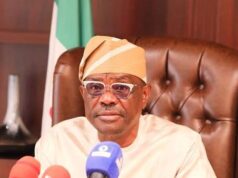
The organised labour has commended Governor Babajide Sanwo-Olu for approving a minimum wage of N85,000 for workers in Lagos State.
Labour leaders described the decision as a positive step for state employees, especially considering the current economic challenges.
In an interview with the News Agency of Nigeria (NAN) on Thursday, Sanwo-Olu confirmed his administration’s commitment to paying the new minimum wage, stating that he wanted residents to see that “their government is working for them.”
 Advertorial
Advertorial
Funmi Sessi, Chairperson of the Nigeria Labour Congress (NLC) in Lagos, welcomed the announcement but noted that the union had anticipated an even higher wage due to the unique cost of living in the state.
“Lagos is different in terms of transportation, accommodation, utilities, and food expenses. Workers here pay more for everything,” Sessi said.
She also called for better infrastructure, particularly alternatives to road transportation, and urged the government to improve safety on the waterways following a recent fatal boat accident.
 Advertorial
Advertorial
Ishola Adejumo, Chairperson of the Radio, Television, Theatre and Arts Workers’ Union of Nigeria (RATTAWU) in Lagos, echoed Sessi’s praise, describing the N85,000 minimum wage as a significant and timely decision.
He emphasized the high cost of living in Lagos and stressed the need for fair wages.
“Lagos is the economic hub of Nigeria, and its workers face higher expenses compared to other states. The new wage is well-deserved,” Adejumo said.

Both labour leaders urged Governor Sanwo-Olu to continue supporting workers by maintaining subsidies for the Bus Rapid Transit (BRT) system and implementing other measures to ease the financial burden on residents.
The announcement has been met with optimism as Lagos continues to set the standard for other states across Nigeria.

















